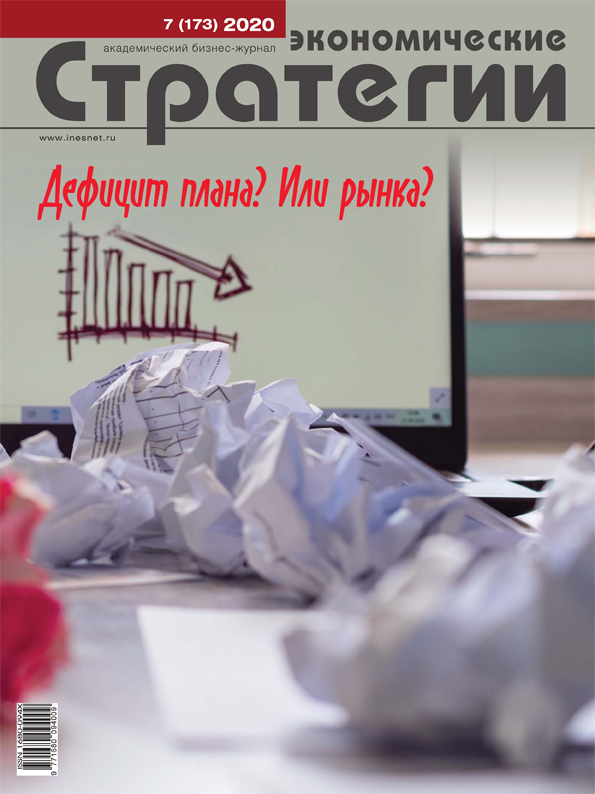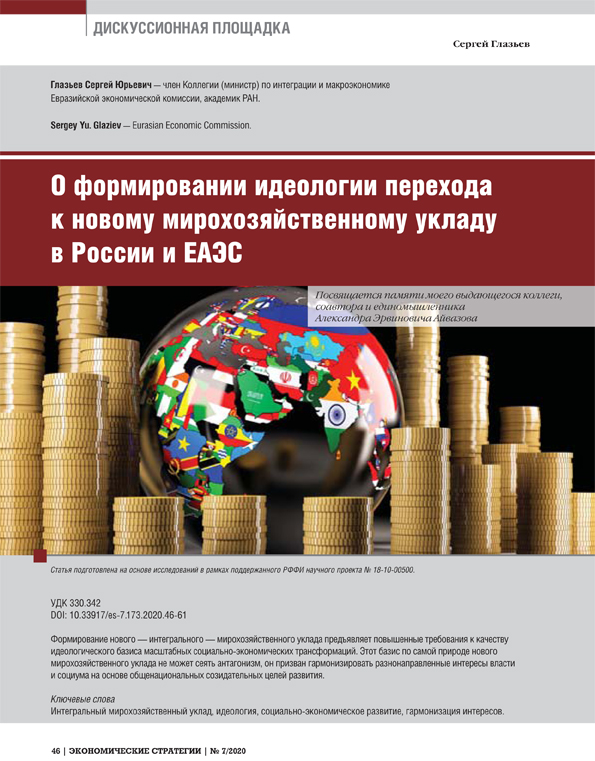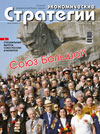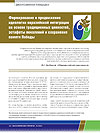Monetary Policy in Russia Reduces Economic Activity during the Period of its Growth – isn’t this a Success?
DOI: 10.33917/es-6.198.2024.48-55
The article dwells on the policy of the Central Bank of Russia to suppress inflation and ensure stable economic growth. The purpose of the study is to identify the impact of the key interest rate on inflation and economic growth in Russia, to specify the negative consequences of its increase. Methodology is based on the theory of monetary policy and economic growth. The overall result obtained is that the current policy of increasing the k ey interest rate in Russia has a negative impact on economic development and is less successful in suppressing inflation than some economists and analysts expect. Moreover, it slows down economic growth, reproduces the growth of inequalit y over a long period, revealing a weakly positive effect in influencing inflation and a negative cumulative ef fect on the rate of economic growth. The approach from the perspective of “distributed control” and the cumulative ef fect, used in the article, makes it possible to reveal the joint dynamics of a number of relevant parameters that characterize and reflect the content and ef fectiveness of monetary policy in Russia. The proposal is that various policy instruments should be subordinated to the task of the real economy growth, supplying it with financial capital, against which the policy of a debt economy with a high interest rate works.
References:
1. Aganbegyan A.G. Tri glavnykh sotsial’no-ekonomicheskikh vyzova, stoyashchikh pered Rossiey, i 15 otvetnykh shagov [Three Major Socio-economic Challenges Facing Russia and 15 Steps to Take in Response]. Ekonomicheskie strategii, 2023, no 1, pp. 6–15.
2. L’vov D.S. Ekonomika razvitiya [Development Economics]. Moscow, Ekzamen, 2022, 512 p.
3. Glazyev S.Yu. Kak denezhno-kreditnaya politika ugnetaet ekonomicheskiy rost v Rossii i Evraziyskom ekonomicheskom soyuze [How Monetary Policy Is Suppressing Economic Growth in Russia and the Eurasian Economic Union]. Rossiyskiy ekonomicheskiy zhurnal, 2022, no 2, pp. 4–20.
4. Bank Rossii ne isklyuchil “bolee znachitel’nogo” povysheniya klyuchevoy stavki [The Bank of Russia did not Rule Out a “More Significant” Increase in the Key Rate]. Banki.ru, 2024, 29 avgusta, available at: https://www.banki.ru/news/lenta/?id=11006234
5. Analitiki TsB zayavili o predposylkakh dlya umen’sheniya peregreva v ekonomike [Central Bank Analysts have Announced Preconditions for Reducing Overheating in the Economy]. Interfax, 2024, 3 sentyabrya, available at: https://www.interfax.ru/business/979396
6. Tseny, inflyatsiya. Potrebitel’skie tseny [Prices, Inflation. Consumer Prices]. Federal’naya sluzhba gosudarstvennoy statistiki, available at: https://rosstat.gov.ru/statistics/price
7. Klyuchevaya stavka i stavka refinansirovaniya [Key Rate and Refinancing Rate]. Garant, available at: https://base.garant.ru/10180094/
8. Denezhnaya massa M2 (natsional’noe opredelenie) [Money Supply M2 (National Definition)]. EMISS. Gosudarstvennaya statistika, available at: https://www.fedstat.ru/indicator/37697







